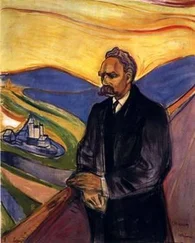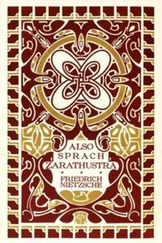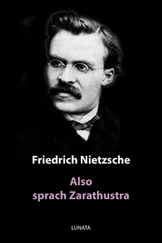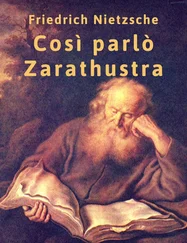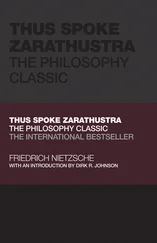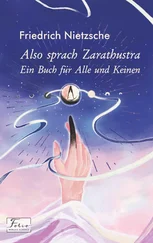And now once more lieth the lead of his guilt upon him, and once more is his weak reason so benumbed, so paralysed, and so dull.
Could he only shake his head, then would his burden roll off; but who shaketh that head?
What is this man? A mass of diseases that reach out into the world through the spirit; there they want to get their prey.
What is this man? A coil of wild serpents that are seldom at peace among themselves—so they go forth apart and seek prey in the world.
Look at that poor body! What it suffered and craved, the poor soul interpreted to itself—it interpreted it as murderous desire, and eagerness for the happiness of the knife.
Him who now turneth sick, the evil overtaketh which is now the evil: he seeketh to cause pain with that which causeth him pain. But there have been other ages, and another evil and good.
Once was doubt evil, and the will to Self. Then the invalid became a heretic or sorcerer; as heretic or sorcerer he suffered, and sought to cause suffering.
But this will not enter your ears; it hurteth your good people, ye tell me. But what doth it matter to me about your good people!
Many things in your good people cause me disgust, and verily, not their evil. I would that they had a madness by which they succumbed, like this pale criminal!
Verily, I would that their madness were called truth, or fidelity, or justice: but they have their virtue in order to live long, and in wretched self-complacency.
I am a railing alongside the torrent; whoever is able to grasp me may grasp me! Your crutch, however, I am not. —
Thus spake Zarathustra.
Table of Contents
Of all that is written, I love only what a person hath written with his blood. Write with blood, and thou wilt find that blood is spirit.
It is no easy task to understand unfamiliar blood; I hate the reading idlers.
He who knoweth the reader, doeth nothing more for the reader. Another century of readers—and spirit itself will stink.
Every one being allowed to learn to read, ruineth in the long run not only writing but also thinking.
Once spirit was God, then it became man, and now it even becometh populace.
He that writeth in blood and proverbs doth not want to be read, but learnt by heart.
In the mountains the shortest way is from peak to peak, but for that route thou must have long legs. Proverbs should be peaks, and those spoken to should be big and tall.
The atmosphere rare and pure, danger near and the spirit full of a joyful wickedness: thus are things well matched.
I want to have goblins about me, for I am courageous. The courage which scareth away ghosts, createth for itself goblins—it wanteth to laugh.
I no longer feel in common with you; the very cloud which I see beneath me, the blackness and heaviness at which I laugh—that is your thunder-cloud.
Ye look aloft when ye long for exaltation; and I look downward because I am exalted.
Who among you can at the same time laugh and be exalted?
He who climbeth on the highest mountains, laugheth at all tragic plays and tragic realities.
Courageous, unconcerned, scornful, coercive—so wisdom wisheth us; she is a woman, and ever loveth only a warrior.
Ye tell me, “Life is hard to bear.” But for what purpose should ye have your pride in the morning and your resignation in the evening?
Life is hard to bear: but do not affect to be so delicate! We are all of us fine sumpter asses and assesses.
What have we in common with the rose-bud, which trembleth because a drop of dew hath formed upon it?
It is true we love life; not because we are wont to live, but because we are wont to love.
There is always some madness in love. But there is always, also, some method in madness.
And to me also, who appreciate life, the butterflies, and soap-bubbles, and whatever is like them amongst us, seem most to enjoy happiness.
To see these light, foolish, pretty, lively little sprites flit about—that moveth Zarathustra to tears and songs.
I should only believe in a God that would know how to dance.
And when I saw my devil, I found him serious, thorough, profound, solemn: he was the spirit of gravity—through him all things fall.
Not by wrath, but by laughter, do we slay. Come, let us slay the spirit of gravity!
I learned to walk; since then have I let myself run. I learned to fly; since then I do not need pushing in order to move from a spot.
Now am I light, now do I fly; now do I see myself under myself. Now there danceth a God in me. —
Thus spake Zarathustra.
Table of Contents
Zarathustra’s eye had perceived that a certain youth avoided him. And as he walked alone one evening over the hills surrounding the town called “The Pied Cow,” behold, there found he the youth sitting leaning against a tree, and gazing with wearied look into the valley. Zarathustra thereupon laid hold of the tree beside which the youth sat, and spake thus:
“If I wished to shake this tree with my hands, I should not be able to do so.
But the wind, which we see not, troubleth and bendeth it as it listeth. We are sorest bent and troubled by invisible hands.”
Thereupon the youth arose disconcerted, and said: “I hear Zarathustra, and just now was I thinking of him!” Zarathustra answered:
“Why art thou frightened on that account?—But it is the same with man as with the tree.
The more he seeketh to rise into the height and light, the more vigorously do his roots struggle earthward, downward, into the dark and deep—into the evil.”
“Yea, into the evil!” cried the youth. “How is it possible that thou hast discovered my soul?”
Zarathustra smiled, and said: “Many a soul one will never discover, unless one first invent it.”
“Yea, into the evil!” cried the youth once more.
“Thou saidst the truth, Zarathustra. I trust myself no longer since I sought to rise into the height, and nobody trusteth me any longer; how doth that happen?
I change too quickly: my to-day refuteth my yesterday. I often overleap the steps when I clamber; for so doing, none of the steps pardons me.
When aloft, I find myself always alone. No one speaketh unto me; the frost of solitude maketh me tremble. What do I seek on the height?
My contempt and my longing increase together; the higher I clamber, the more do I despise him who clambereth. What doth he seek on the height?
How ashamed I am of my clambering and stumbling! How I mock at my violent panting! How I hate him who flieth! How tired I am on the height!”
Here the youth was silent. And Zarathustra contemplated the tree beside which they stood, and spake thus:
“This tree standeth lonely here on the hills; it hath grown up high above man and beast.
And if it wanted to speak, it would have none who could understand it: so high hath it grown.
Now it waiteth and waiteth—for what doth it wait? It dwelleth too close to the seat of the clouds; it waiteth perhaps for the first lightning?”
When Zarathustra had said this, the youth called out with violent gestures: “Yea, Zarathustra, thou speakest the truth. My destruction I longed for, when I desired to be on the height, and thou art the lightning for which I waited! Lo! what have I been since thou hast appeared amongst us? It is mine envy of thee that hath destroyed me!”— Thus spake the youth, and wept bitterly. Zarathustra, however, put his arm about him, and led the youth away with him.
And when they had walked a while together, Zarathustra began to speak thus:
It rendeth my heart. Better than thy words express it, thine eyes tell me all thy danger.
As yet thou art not free; thou still seekest freedom. Too unslept hath thy seeking made thee, and too wakeful.
Читать дальше

